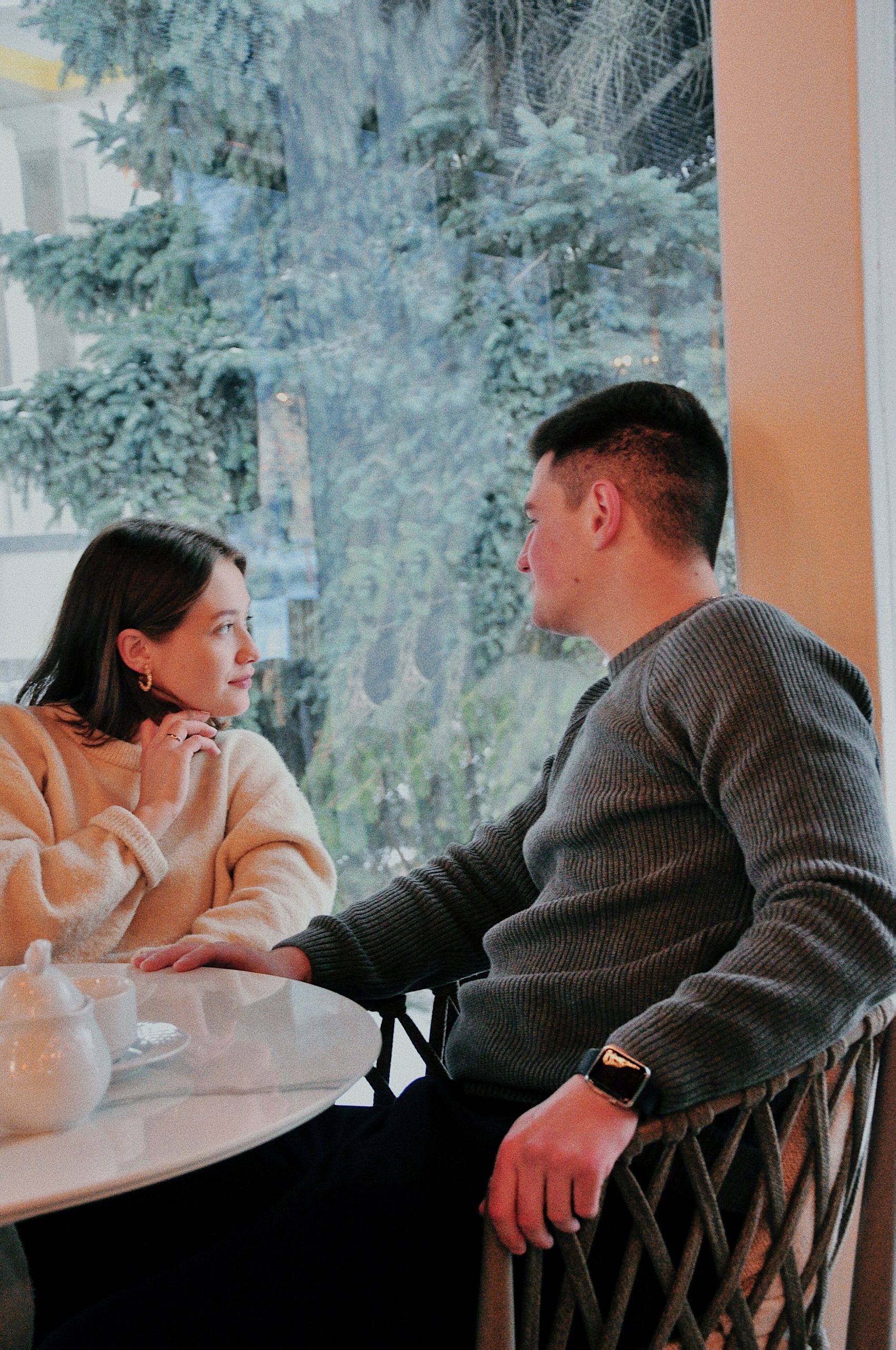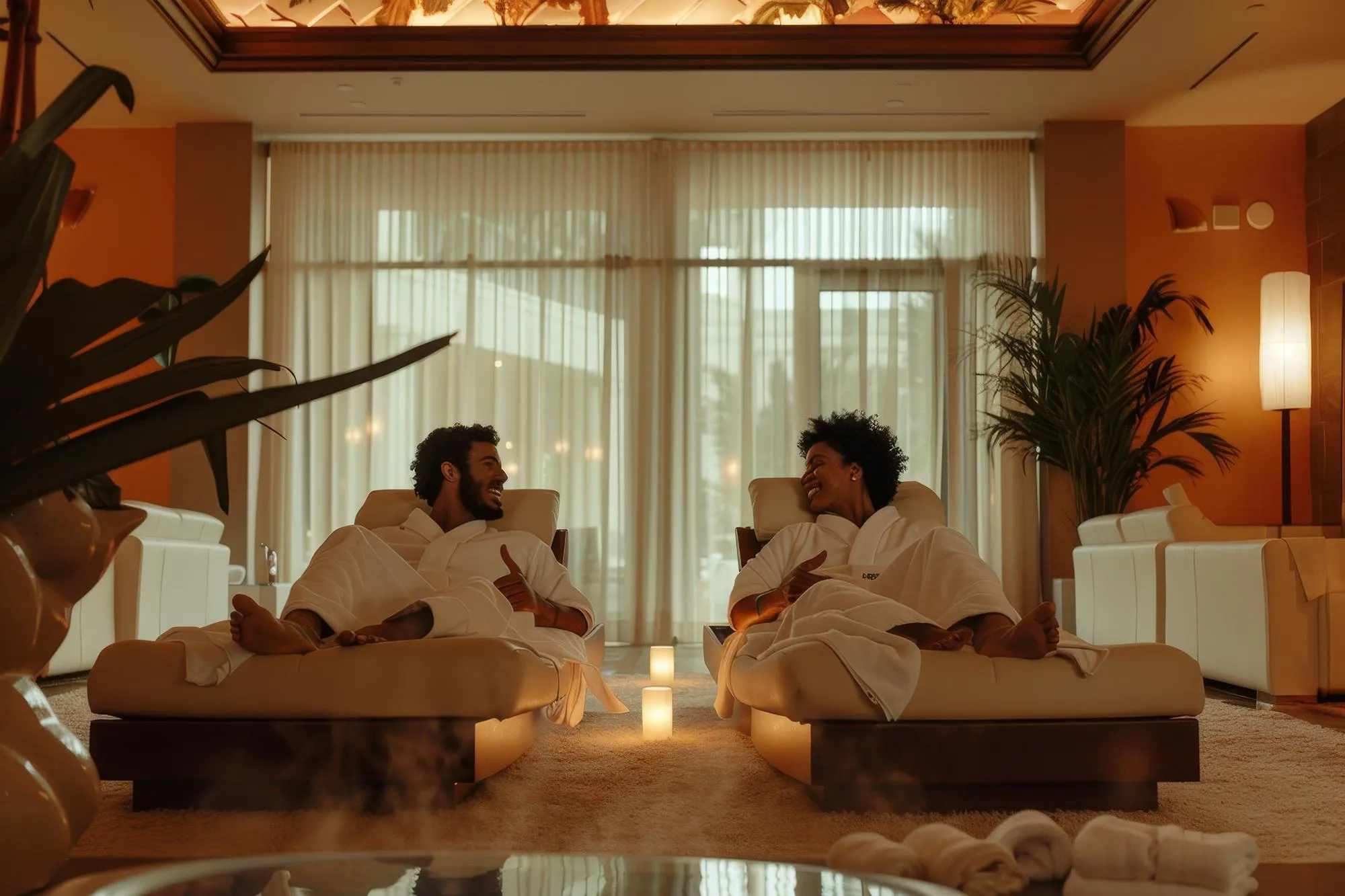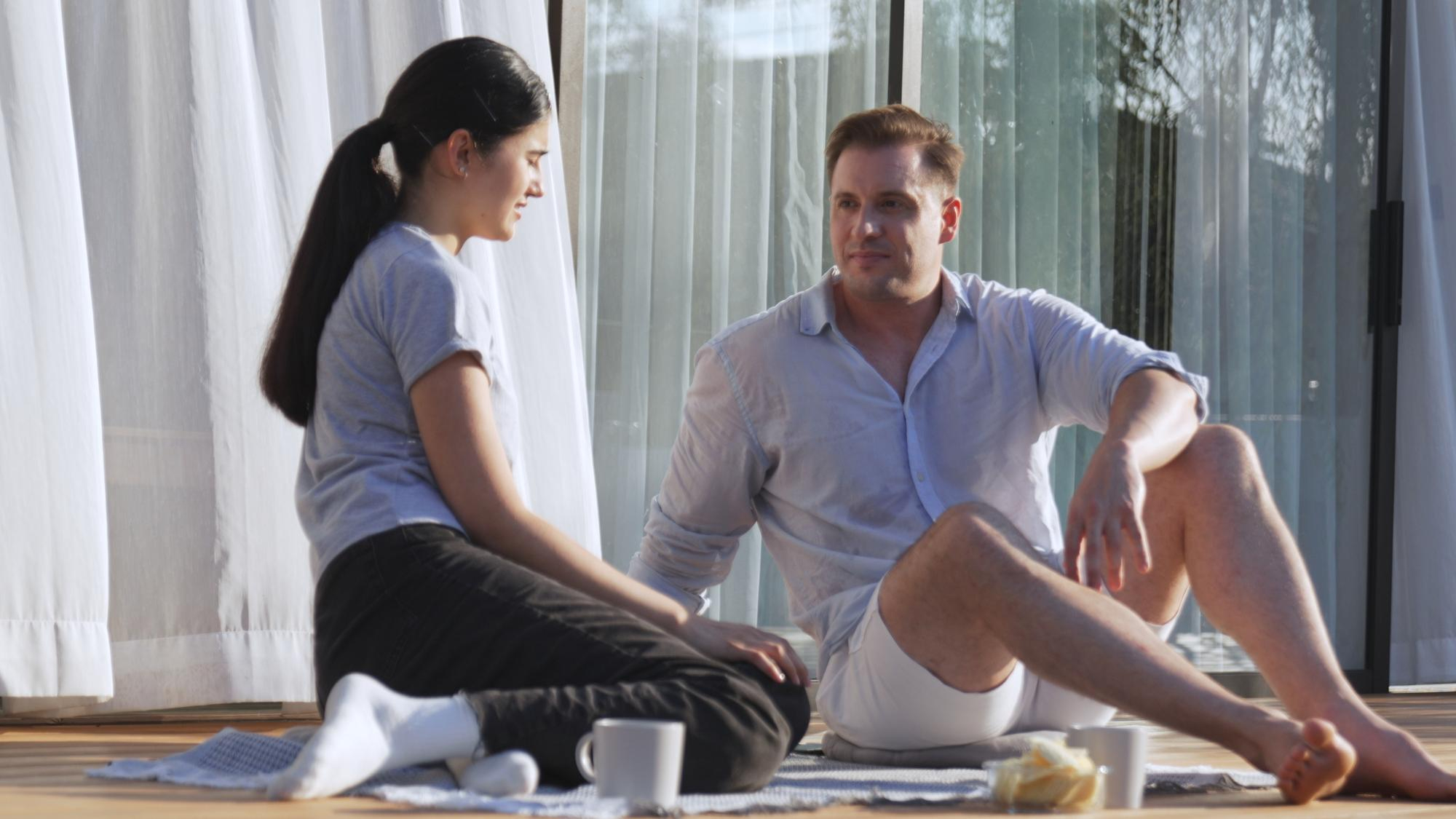Couples Retreat vs. Traditional Couples Counselling
We all know that relationships have their ups and downs. Sometimes, we need a helping hand. When couples face troubling times in their relationships, getting help from a professional often becomes an essential step toward recovery. The usual route is to resort to traditional therapy, which provides insight and guidance over time. Yet there are cases where couples wonder whether therapy is truly for them.
A couple’s retreat steps in at that point. A getaway can enable the couple to connect better, understand one another more, and build their relationship far more quickly through a more immersive and intensive experience. This blog will explore how a couple’s retreat is often better than traditional counselling.
Traditional Therapy Only Goes So Far:
Traditional therapy is the bedrock for personal and relational growth. Still, it often focuses more on individual therapy, sometimes making it harder for couples to address relationship dynamics. With this therapy, each partner works on resolving their conflict while the relationship’s emotional dynamics often go unaddressed. There is the discovery of underlying patterns and traumas, but working through them remains tricky, exceptionally when therapists are not versed in focusing primarily on the relationship. While therapy offers profound benefits over time, some couples may need quicker, more immediate results, which is where a retreat can be especially impactful. And with one hour-long session, time is limited to embark on profound and transformative work. This is what a couple’s retreat offers: a much edgier approach to work. It allows couples to focus entirely on their relationship, deepening the process and facilitating immediate transformation.
The Role of Environment in Couples’ Retreats vs. Therapy
Unlike conventional therapy, which is often held in clinical environments, retreats provide a more peaceful, nature-inspired setting designed to foster emotional healing. Usually located in tranquil environments, often inside a luxury resort, these settings offer a lovely change of scenery from the stresses of everyday life. Setting enables emotional healing by opening the way for couples to put aside distractions, pressures at work, and routine chores that may block genuine emotional bonding. Removing distractions can be more challenging in an office setting, which may limit the ability to focus entirely on the relationship. A change of scenery is indeed what helps partners unwind and open up. The retreat’s resort environment helps couples relax and create the mental space needed to focus on each other, making emotional breakthroughs more attainable.
Romantic Love is Deeply Intertwined With Emotions
One of the most significant areas in which a couple’s retreat is better than traditional therapy is the emotional aspect of relationships. Romantic love is deeply intertwined with emotions, and how we feel often shapes the course of our relationships. This softens the message without losing its core meaning. The highs and lows of emotions can cause couples to act erratically, feel isolated, or misunderstand each other.
Traditional therapy often addresses emotional issues from a clinical standpoint. Still, it may not always provide the immediate, in-the-moment emotional engagement that some couples need; they can lack the immediate emotional attention that retreats offer. Couples can engage in facilitated activities in a retreat that allow them to learn about and understand their emotional responses, with professional guidance to help reconnect emotionally and re-establish intimacy. A marriage retreat focuses on reconnecting emotionally with your spouse, enabling both spouses to communicate their feelings in a nurturing setting.
Traditional Therapy is Slow
Traditional therapy is often a gradual process, which may take months or even years to yield visible results. In contrast, a marriage retreat provides more immediate, immersive support that can bring quicker change. Although it’s undoubtedly an excellent tool for in-depth self-discovery, it can be frustrating for couples who want to witness tangible changes in their relationship as soon as possible. Sessions are usually staggered, and noticeable progress can seem far away or delayed.
On the other hand, a marriage retreat offers an intensive, compact experience whereby couples can work on problems directly within a short time. During the retreat, couples participate in relationship-enhancing activities, communication skills, and conflict resolution skills, which enable them to make rapid progress. The undivided time together in a retreat environment enables rapid emotional breakthroughs, translating into long-term changes that would take too long under standard therapy.
What is it that makes a couples retreat more effective than traditional therapy?
A couples retreat is usually more effective than conventional therapy for those searching for an immediate, fundamental change. While therapy takes weeks or months, retreats offer an intensive, immersive intervention in a distraction-free environment where clients spend uninterrupted time working on emotional connection, communication, and conflict resolution with expert facilitation. Retreats, in their peaceful setting and focused schedule, accelerate emotional breakthroughs and provide pragmatic tools for the couple. On the other hand, therapy moves at a slower pace, hour-long session by hour-long session. Therefore, retreats work well for couples who require immediate and profound emotional change.
5 Reasons to Choose a Marriage Retreat

Private marriage retreats provide unique opportunities for transformation. Here’s why many couples choose them for faster, more lasting results.
Intensive, Immersive Experience
A retreat for couples provides an overall experience where they spend a week or two mainly focused on their relationship. This complete immersion can lead to drastic transformation in a few days.
Encourages Momentous Emotional Reunion
Couples can re-bond on a deeper emotional level by engaging in activities that promote understanding, empathy, and closeness—something that weekly therapy often cannot provide in hourly sessions.
Professional Guidance in a Nurturing Setting
A good retreat facilitator will have specialized graduate level training in Marriage/Couples and Family Therapy, be licensed in their jurisdiction as a MFT/CFT, be a clinical fellow of the AAMFT (if they are based in the USA), RMFT (if they are based in Canada) or EFTA-CIM member (if they are based in Europe). They are relationship dynamics, communication, and conflict resolution experts. They equip couples with the skills to overcome challenges in their relationship, with guidance specific to their individual needs. Please ensure that the therapist is licensed to practice psychotherapy and ideally Marriage/Couple and Family Therapy, and has the highest level of member credentials in their National Marriage/Couple and Family Therapy.
Improves Communication Skills
Communication skills training is an integral component of most marriage retreats. The couple becomes better communicators, speaking and listening, which can ultimately lead to more understanding and less misunderstanding in the future, and most importantly, stop taking each other so personally.
Sustained Change within a Smaller Period
Unlike traditional therapy, which is, at best, painstaking, marriage retreats provide tips and strategies that yield long-lasting changes within a very short period of time. Their immersive nature assures couples of a life-reformation experience rather than just theoretical instruction.
The Aftercare and Support Following a Couple’s Retreat
One of the most significant advantages of attending a couple’s retreat is the follow-up and aftercare support. Here’s how the ongoing support benefits couples after the retreat:
Virtual therapy sessions:
Many retreats offer follow-up virtual couples therapy sessions to help couples maintain their progress.
Remote Check-ins:
Regular remote check-ins to ensure couples stay on track and continue using the tools they learned.
Online Group Access:
Exposure to an online group where couples can share their experiences and give advice, keeping them connected to their retreat experience.
Practical Resources:
Access to helpful materials allows couples to implement what they learned daily.
Transforming Your Relationship at Couples Retreat

We give couples the power to go deeper into their relationship and invest long-term in creating healthier outcomes. We customize our retreats to provide couples with a complete experience that addresses the presenting issues, communication, and conflict resolution. You will be working with an expert and licensed Marriage Therapist at the luxury resort of your choice. Committing the time, effort, and getting away from your daily life can make the difference in your marriage, even if you are on the brink of divorce.
Our retreats are custom-designed to meet the unique needs of each couple. They provide couples with tools for long-term healthy development and leave couples with a deeper understanding of one another and how to work with each other. Relationships thrive when partners have the time and space to create a real connection and understanding. We aim to help couples reconnect and establish the foundation for a healthy relationship that will last, whether you plan to stay together or separate and become respectful co-parents.
FAQs
1. What is the difference between a couple’s retreat and regular couples therapy?
A couple’s retreat is a comprehensive, integrative experience in which couples commit to spending quality time, intensively focused on their relationship. Typically occurring at a luxury resort, a retreat allows couples to break out of their daily cycle and distractions, re-engage emotionally, communicate better, and resolve conflict. The work conducted in a retreat is all meant to quickly solve relationship dynamics, causing change within a reduced time frame, so couples can feel change faster. In contrast, standard couples therapy is usually conducted through one-hour sessions once a week. The work is performed more slowly because therapy works on both parties’ personal growth and coping skills. While treatment can have lasting results, yielding tangible shifts in relationship behaviors takes longer. With a marriage retreat, however, couples receive direct, experiential guidance to help them overcome challenges and grow together in an intensive setting.
2. Can a marriage retreat help improve communication?
A marriage retreat is designed to enhance communication between spouses significantly. Communication issues are often a significant issue in most marriages, and a retreat provides an environment in which couples can practice healthy communication under the guidance of an expert marriage therapist. In a retreat, couples go through various guided processes like therapeutic discussions, exercises, and role-playing situations that lead them to active listening, speak openly and effectively about their emotions, and better understand each other’s emotional needs. Through these exercises, couples become capable of surmounting barriers in communication and being more vulnerable and open to each other. Under the intensive conditions of a retreat, couples gain concrete skills for more effective communication, such as communication without judgment, communicating emotions positively, and building support for one another’s feelings. The environment speeds up the process of having more effective and faster improvement in communication, which leads to greater emotional closeness and a more intimate connection between the partners.
3. Why are couples retreats more effective than therapy for some couples?
Couple retreats are more effective for some couples because they offer an intense, immersive experience that provides quicker results. In the traditional therapy process, change happens gradually, as couples see the couples therapist once a week and slowly work on issues that affect the relationship. While traditional therapy provides long-term outcomes, at times it feels like it is taking forever, especially for couples who are on the brink of divorce, facing urgent issues, or feel disconnected and desire immediate change. On the other hand, a marriage retreat allows the couple to work on their relationship solely in a non-interfering setting. Intensive time together allows for faster healing and will enable couples to have breakthroughs in communication, emotional bonding, and conflict resolution. Couples retreats are designed to offer faster change, usually offering tools and insight that have the potential to bring profound and long-term change in a few days. For those couples who want immediate satisfaction and a life-altering experience, a retreat can be far more effective than regular one-hour-a-week couples therapy.
4. How long does a marriage retreat last compared to therapy?
Marriage retreats last from a weekend to a week or more, offering an intensive and immersive experience where couples can focus intensely on their relationship problems. During this time, couples attend individual and couples therapy sessions, and activities to enhance communication, conflict resolution, and emotional bonding. The intensive nature of these retreats enables couples to work through issues in a condensed time frame, which is ideal for couples who need immediate help or like to experience significant progress in a short time frame. Conventional therapy can take several months or years, with standard sessions being weeks or months apart. While therapy is an ongoing process that encourages growth in the long term, typically, couples take longer before significant changes are seen. On the other hand, a marriage retreat provides couples with a means of undergoing radical change in the short term, often leaving couples with lasting tools and methods that allow them to maintain the strengthening of the relationship.
5. Is a couple’s retreat right for every relationship?
Couple retreats are ideal for most couples, especially those in crisis or with communication issues, emotional disconnect, or those whose relationship needs strengthening. They are perfect for couples experiencing challenges such as infidelity, chronic arguing, feeling disconnected emotionally, sexually, and intimately, or communication breakdowns. A retreat offers a focused environment where couples can address these issues with professional guidance and progress significantly in improving their relationship. However, a marriage retreat is not always suitable for all couples. Individuals who are experiencing severe issues, suchas current abuse, addiction, or severe mental illness, are best helped by conventional medical and mental health services, where more individualized aid and longer-term treatment are available. Under these circumstances, therapy may be beneficial in addressing individual concerns before engaging in a retreat. Couples must consider the special needs of their relationship to determine whether a retreat would best suit them.
Conclusion
Emotionally intelligent marriages thrive on good communication, trust, and understanding. While conventional therapy is worth its weight in helping individuals develop, a marriage retreat offers a targeted, life-altering experience that can accelerate emotional reconnection and improve communication. By investing in a retreat, couples can overcome serious issues such as infidelity, achieve long-term change, create an engaged emotional bond, and create a healthier, more supportive relationship. Take the first step toward reconnecting with your partner.








